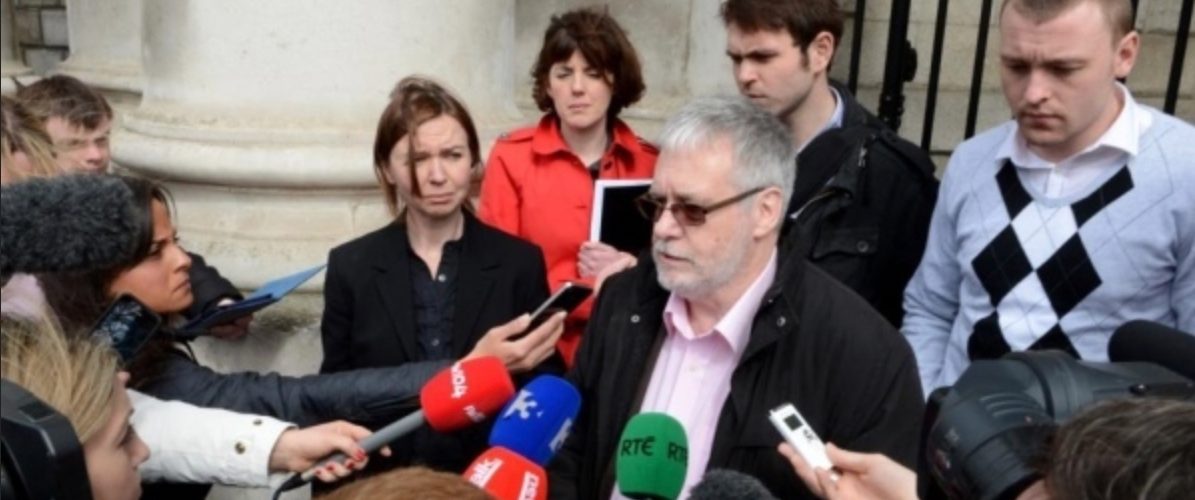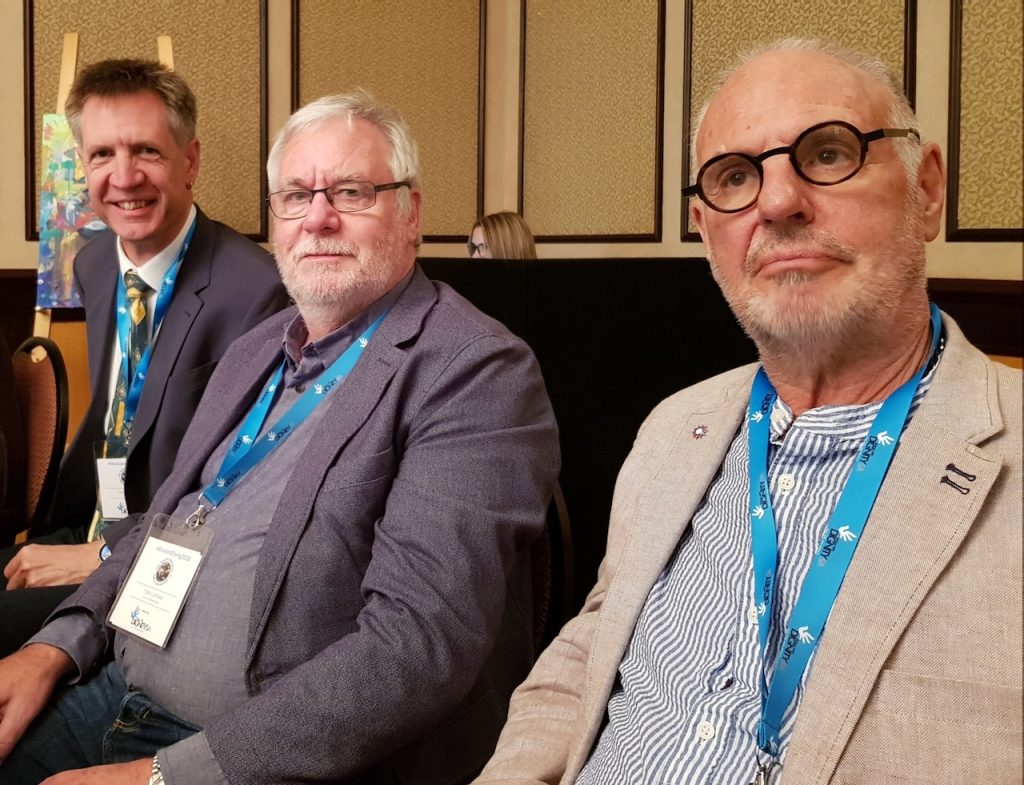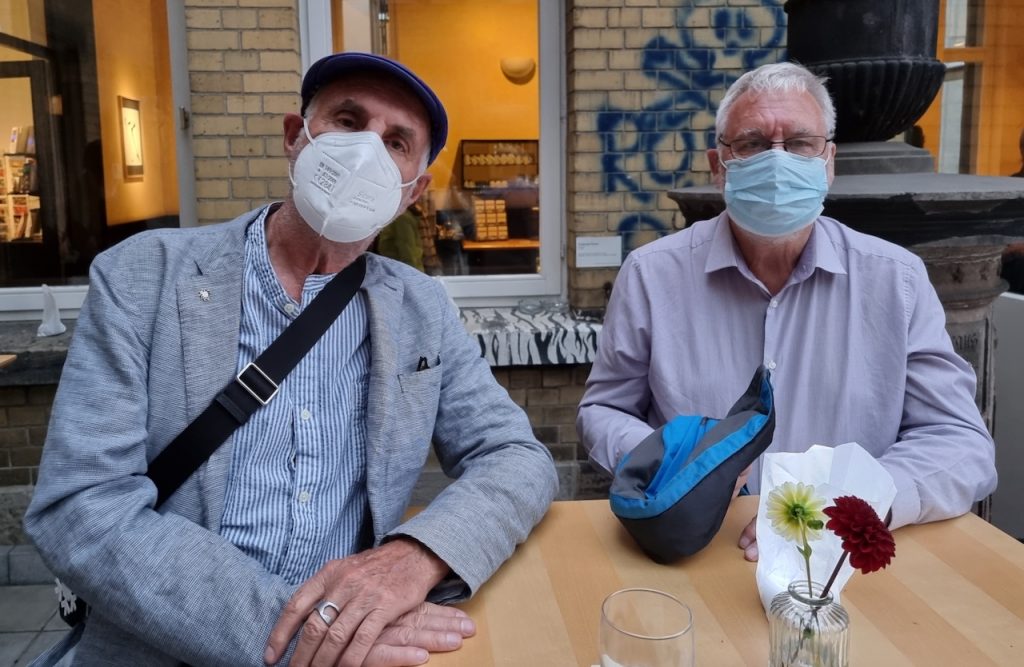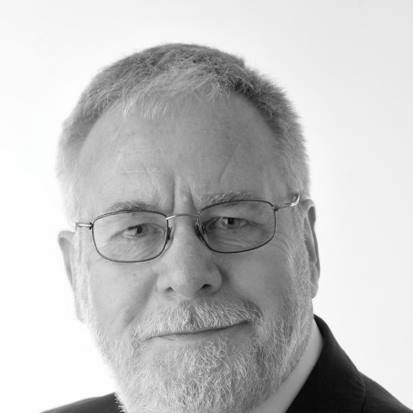Tom Curran felt hurt when Marie said she wanted to die

By Elizabeth Doherty, Ireland Today News
AS RIGHT-TO-DIE campaigner Tom Curran approaches a third Christmas without his beloved partner, Marie Fleming – he broke down describing how he had once been “hurt” by her request to die.
Tom Curran, from Killahurler, near Arklow, Co Wicklow, has maintained a strong front throughout a lengthy legal and political campaign which has to this day not moved legislation to offer assisted suicide to those who favour it.
But as the weather turns colder and the days countdown to Christmas – a time of year most of us revel in, Tom knows the season is only a bitter reminder of losing a woman he so clearly adored on December 20, 2013 when Marie passed away.
Marie, 59, had suffered Multiple Sclerosis for years and the couple had come to an agreement that as her illness progressed, Tom would assist in ending her life.
Though the activist has always been frank about this intention to the media – and though Marie did die naturally in the end – it was an initial shock for him to accept her, most unthinkable of requests.
“The only point I felt hurt was that she was considering that (death) early on.
“It was a bit of a shock when Marie said it at first because it was something I had never thought of but knowing Marie, when she did say it, I realised this is a rational person planning for the future, like anyone.
“The thing from my point of view of hurt, is that this is probably one of the most difficult things that anyone in the world can be asked to do. To help someone they love to die.
“I’m sorry I’m getting emotional now – but it is probably the most difficult thing anyone could be asked to do because we don’t want the person we love to go, to disappear, to die at all, but at the same time, if it is their will, its’ a real test of true love.“It’s almost the same as we planned for modernising the house when her mobility went. We had a downstairs bedroom, we had to plan for wheelchairs – it was part of that long-term planning.
“It throws selfishness out of the door. It is now you putting your freedom on the line to do what they want, to protect them from the pain they are going to suffer.”
Tom Curran and deceased partner Marie Fleming who suffered MS
Tom Curran and deceased partner, Marie Fleming, who suffered MS
Tom said that as the days get closer to Christmas, as the streets start to fill with festive shoppers, he is reminded of the sadness that awaits.
He remarks that Christmas is “a time for children,” but that that whole dynamic of enjoying the laughter of grandchildren had “changed,” because “the whole family knows it was just five days before Christmas day that she died.”
“That Christmas was very different and it’s too close still,” he said.
This will only be the third Christmas since Marie died, so the festive season to the whole family has changed very much and it’s a constant reminder that she’s not around.Tom said the last month was a “blur” at the end of 2013, because he had been sitting up most of the night, comforting Marie, until she finally slipped away.
He was so tired the day of her death, he can barely remember a thing from that dark time.
“Seasons change. It’s getting colder and it’s coming up to Christmas – it’s the last month.
“I don’t remember much about it at all but as the dark evenings come in and the leaves star to fall, it is an appropriate time that nature is dying, and Marie died at that time too.”
It seems this time of year is poignant for Tom for other reasons too. It was in December 2012 that Marie brought her case to challenge the law on a person’s “right” to assisted suicide at the High Court in Dublin.
She had wanted Tom, her ever-supportive partner, to assist her in ending her life and for it to be accepted in the eyes of the law.

But that case failed and yet she still somehow carried on, taking her plight to the Supreme Court.
In April 2013, the legal battle ended after that court upheld the ruling.
Marie, who was mother to Simon and Corrina, was diagnosed with MS in 1986 when she spotted a change in gate and her foot began to drag.
She argued that the ban on assisted suicide was against her human rights because a physically mobile person could take their lives.
By the time of the court cases, the unthinkable had become normalised by Marie, Tom and her grown up children. They had learned to accept her wish.
And Tom said that “her whole body” had started to “relax” on the day the final decision was made that she would not have to travel to Dignitas in Switzerland to end her life – that she would die peacefully, at home with her partner.
Though her body gave in to the terrible strains of MS in the end, Tom is clearly still grieving the loss of a woman he loved without question.
But he has been left with a terrible cross to bear. Marie may have passed away and gained, in the end, peace – but many others are tormented – and some still turn to Tom for hope.
Tom Curran and Marie Flaming. This Christmas period will be the third anniversary of hear death.
Tom Curran and Marie Fleming. This Christmas period will be the second anniversary of her death.
I get two to three calls a week from people who want to plan for their future. he said.The word “plan,” so clearly a euphemism for death.
“Some of the calls are very distressing because of some of the situations people are in,” he said.
“I don’t just get calls from the people directly. I get calls from their husbands and wives. I have to be very careful about what I do because giving them the assistance they want would be breaking the law.”
Those who phone Tom suffer illnesses including cancer, MS and Parkinson’s disease. Often they call, not long after diagnosis, for “insurance” purposes, thinking of the best way to end their lives peacefully, before their bodies are unable to fight side effects of grave illness.
They want to plan, want that choice. It’s to make sure they have what I call insurance. When they send off to Mexico or China for their Nembutal. When the package arrives through the door and they know they can put that package away, then they are in control, no longer afraid of death, the type of death they will have.”They know they have the control themselves. They get on with life and when that plan was in place, we got on with living too.”
Nembutal is a drug from the barbiturate class and it was used in the ’50s as a sleeping pill. Unlike other sleeping pills, it is lethal in overdose.
It is said to bring about a peaceful death and this is why the drug is favoured by advocates of assisted suicide.

Speaking about the people who come to him for advice, Tom said: “All of them have decided they want an option, not necessarily that that they want to die there and then.
“They are thinking if things get bad, I want to have that option and that to me is a right everyone should have.”
Though he has walked a difficult road for “love,” Tom is still not at peace it seems.
The biggest effect on me is dealing with people calling me all the time, to know how to die because it means they are people in a similar situation to Marie and that was something I couldn’t possibly have taken in to account.“That there are so many out there with nowhere to turn because when I agreed to put a plan in place to stop her going to Switzerland all those years ago, I had no idea that I would understand completely the situation these people are in and why they are phoning me.
“And it’s so frustrating as well as painful.”





